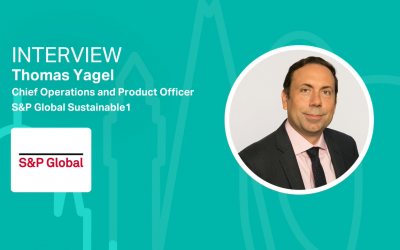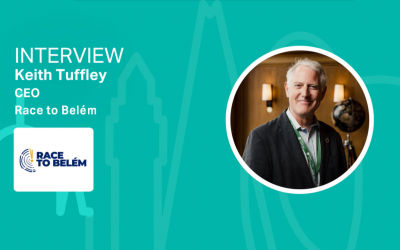Tate Cantrell on how emerging technologies can be utilised for climate action
The week after the Sustainable Innovation Forum 2019, which took place alonngside COP25 on the 10-11 December in Madrid, Spain, we caught up with Tate Cantrell, Chief Technology Officer at Verne Global, to discuss how technologies such as AI can be utilised for climate action.

The week after the Sustainable Innovation Forum 2019, which took place alonngside COP25 on the 10-11 December in Madrid, Spain, we caught up with Tate Cantrell, Chief Technology Officer at Verne Global, to discuss how technologies such as AI can be utilised for climate action.
Q. Let’s start with some background on Verne Global?
Since 2012, Verne Global has delivered sustainable computing, and its data center campus in Iceland is specifically designed to support high performance computing (HPC) and Artificial Intelligence applications in an optimised environment, supported by a world class team of HPC experts. The campus is powered by hydroelectric and geothermal power, and naturally cooled due to Iceland’s cool, temperate climate. Verne Global provides high performance computing data center and cloud services for a variety of companies, including BMW, Volkswagen, scientific institutions like Earlham Insititute, global financial institutions, and advanced technology companies like DeepL.
Q. How important is the role of data in achieving smart, sustainable mobility? Are we close to realising its full potential and are there any barriers that must be overcome to realise it?
Data is fundamental to smart, sustainable mobility, informing traffic flow, safety initiatives, maximising efficiency of public transportation services and reducing carbon footprint. But the massive datasets involved require computational power that most cities' legacy IT infrastructure simply cannot support.
At the same time, supercomputing capabilities continue to evolve, but the costs involved and the technical talent required often mean that advancements like exascale computing aren't accessible to city governments. If smart, sustainable mobility is to become a reality, cities must find ways to ensure that they are in a position to utilise new technology.
Q. How can public-private sector collaboration including policy and regulation, be utilised to overcome any existing or anticipated barriers preventing data from reaching its full potential in the transition to smart, sustainable mobility?
The private sector can help cities achieve their smart, sustainable mobility goals by not just offering funding and investment, but also by providing greater access to the compute power needed to transform today’s cities.
Verne Global’s recent partnership with Bonseyes is an example of how private sector organizations can support the public sector’s smart cities efforts. Verne Global, a provider of advanced data centre solutions for high performance computing and AI, and Bonseyes, have collaborated to provide access to a platform for building and trading AI applications.
Through this partnership, innovators have access to compute-intensive AI applications and technical support that was previously only available to larger organisations and enterprises. Improved cost-efficiency and access to expertise are crucial for public-private sector collaboration to succeed, and platforms like Bonseyes' are paving the way.
Q. How can technologies such as AI be utilised for climate action? Where can they add the most value?
Artificial Intelligence is giving us new tools to be able to learn how to ask better questions. If we are going to solve the problems that are being born from climate change, we cannot rely on brute force. We have to leverage data in a smarter way that we have never done before. But the most important resource is the data. We are moving in the direction of exascale supercomputers, but without the right data, we are wasting time and energy. Technology companies and governments must come together in a true partnership that is committed to climate action. Verne Global is working actively with its customers and with the Icelandic government to ensure that Iceland is prepared to host the Sustainable Computing Center for Climate Action. By combining the best sources of climate data, advanced computing resources, and a 100% sustainable energy grid, this partnership will have the highest return on investment for a sustainable future.
Q. What is the importance of events such as the Sustainable Innovation Forum for organisations like Verne Global?
At Verne Global we work on our mission for sustainable computing because we believe we have a responsibility to future generations. We know that the world’s exponentially increasing demand for technology will require an ensuing exponential increase in the need for energy sources to power that technology. And only by thinking carefully about how our data is stored and processed can we ensure that we are doing right by the future denizens of our planet. Verne Global is committed to providing truly sustainable computing solutions anchored at its 100% sustainably powered data center campus in Iceland.
Verne Global was a Gold Sponsor of the 10th annual Sustainable Innovation Forum which took place alongside COP25 on the 10-11 December in Madrid, Spain. To learn more about the Sustainable Innovation Forum 2020, visit the event's official website here.






